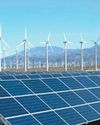
The COVID-19 pandemic raised alarms across the world on many fronts. Fears of a new virus running rampant, first and foremost. But as the world locked down in a bid to control the virus' spread, other concerns arose, like securing face masks and ventilators, computer chips and car parts-and even toilet paper. Exposed by the pandemic was the tenuous nature of the worldwide supply chain. NEW YORK TIMES global economics correspondent Peter S. Goodman explores these fault lines and how they came to exist in his new book, HOW THE WORLD RAN OUT OF EVERYTHING (Mariner, June). In this excerpt, Goodman analyzes how, decades earlier, businesses worldwide began to rely on China to improve their bottom line by providing cheap labor for manufacturing and an expansive market of consumers, culminating in widespread offshoring and just-in-time shipping-with no safety net.
EVEN FOR A FIGURE INCLINED toward impromptu displays of showmanship, Bill Clinton outdid himself inside the massive banquet hall in the heart of Beijing.
It was a balmy night in June 1998, and the president was in the midst of alternately wooing and pressuring China's government to assent to American terms on a deal bringing the nation into the World Trade Organization. He and then-First Lady Hillary Rodham Clinton were attending a state dinner at the Great Hall of the People, the colonnaded fortress occupying the western edge of Tiananmen Square.
Only nine years earlier, the square had been the locus of an extraordinary protest movement led by students who demanded greater freedom. The People's Liberation Army put down the uprising with a massacre that killed several hundred people. That act of brutality had defined China in international discourse for years after. But China's pariah status was already fading as Western executives salivated over the lucrative opportunities waiting to be exploited there. The Clintons were in Beijing in the service of that cause.
This story is from the June 21 - 28, 2024 (Double Issue) edition of Newsweek Europe.
Start your 7-day Magzter GOLD free trial to access thousands of curated premium stories, and 9,000+ magazines and newspapers.
Already a subscriber ? Sign In
This story is from the June 21 - 28, 2024 (Double Issue) edition of Newsweek Europe.
Start your 7-day Magzter GOLD free trial to access thousands of curated premium stories, and 9,000+ magazines and newspapers.
Already a subscriber? Sign In

Mystery of Ginger Cat Is out of the Bag
The genetics behind the vibrant orange color in feline coats is finally confirmed after 112 years

Paris Hilton & Nicole Richie
PARIS HILTON AND NICOLE RICHIE ARE READY TO BRING A LITTLE “SANASA” to the world with Peacock's Paris & Nicole: The Encore, their first project together since their reality show The Simple Life ended in 2007. What's “sanasa”? It's a song and phrase the longtime friends created as kids and popularized on The Simple Life. The show, a cultural phenomenon in the early days of reality TV, followed them over a series of blue-collar jobs. Now they're bringing it back as an opera. “I know this is just going to make people laugh, have fun, be nostalgic and just celebrate our friendship,” Hilton said. While Richie acknowledged “you can't do Simple Life again,” she said now “felt like the right time.” The famous pair also revisit some old jobs in Arkansas, like fast-food chain Sonic, where they now have drinks named for them. “I think that there is a part of our friend- ship that the show ended up showing that people connect to,” Richie said. As for this new special, Hilton is glad to do something positive for their fans. “It's been such a crazy past couple years, and I just feel like the world needs more joy.”

What Next for Your Drugstore?
Walgreens and Amazon are placing opposing bets on the future of retail pharmacy

AMERICA'S GREATEST WORKPLACES for Diversity
AS COMPANIES IN THE UNITED STATES CONTINUE TO navigate the evolving dynamics of the workplace, diversity remains a cornerstone of organizational success and social responsibility.

FIGHTING SPIRITS
ANDREA MCCARTHY TOLD FRIENDS and family when she gave up alcohol on January 1, 2024, that she would toast 12 months off the sauce with a drink to ring in 2025. As that anniversary approached, the Los Angeles-born content creator told Newsweek she had had a change of heart.

Lessons Over Lunch
Ninety-year-old volunteer Hugh showed me how the winter years can be full of purpose

Is California's Green Dream Hot Air?
The state aims to rely on zero-carbon energy sources in two decades' time but has hurdles to overcome along the way

Power Struggle
As the dust settles following the toppling of Bashar al-Assad, new front lines could be drawn in Syria's old civil war

Ray Romano
THE MAJOR THING ABOUT NETFLIX'S NO GOOD DEED THAT APPEALED TO Ray Romano was that it was unlike anything he'd done before.

Has J.K. Rowling Won the Culture War?
After years of backlash over trans issues, the Harry Potter author has received major business backing